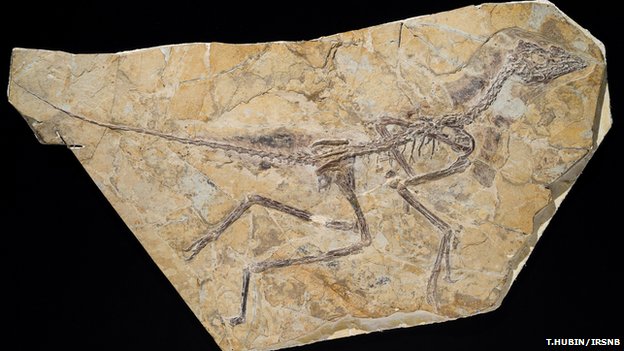May
31
2013
Here is it.
Steven,
We agree that historical sciences like evolution are “tested” by the evidence. My key insight from our discussion is we disagree about the amount of evidence needed to demonstrate evolution. I want to see significantly greater evidence than you do.
I admit that I do not have the time to read all the technical articles and read all the links you have referred to, but I do not admit that I am unable to judge the adequacy of the evidence evolutionists have presented for evolution. I have read the popular literature of highly acclaimed evolutionists; I have thought about how much evidence is required to demonstrate evolution. And, I have found it unconvincing.
Of course our major disagreement is that I am a theist and you are an atheist. I wonder how much that “colors” our view of the sufficiency of the evidence for evolution.
Thank you again for the opportunity to be interviewed on your podcast and to have this this continued dialog. I have truly enjoyed our discussion; you are the proverbial “scholar and a gentleman.”
Don
Continue Reading »
May
30
2013
 Keeping with the recent discussion of the evidence for evolution, I want to discuss another well-preserved fossil bird from the Liaoning Province in China – Aurornis xui, or the dawn bird. As the name implies, this fossil represents what is now the most basal species on the branch that diverted from other dinosaurs and ultimately led to modern birds.
Keeping with the recent discussion of the evidence for evolution, I want to discuss another well-preserved fossil bird from the Liaoning Province in China – Aurornis xui, or the dawn bird. As the name implies, this fossil represents what is now the most basal species on the branch that diverted from other dinosaurs and ultimately led to modern birds.
Before I get into the details of this new fossil, let me go over some background, and the implication of these finds for the theory of evolution.
When Darwin proposed his theory in 1859 the fossil record was scant. Already at that time, however, there were enough fossils for geologists to have recognized a pattern – different geological strata contain different assemblages of fossils. They seem to change, or evolve, over geological time. Fossil species do not all arise at one, they are not randomly placed, nor are they the same throughout geological time – they profoundly change.
Continue Reading »
May
28
2013
Two weeks ago I wrote a four-part post analyzing the claims of Don McLeroy, former chairman of the Texas Board of Education, based mostly on an interview I did with him on the SGU. The posts also included some responses from Don. Don has been travelling, but has now returned and had time for a thorough response to the entire series of posts. Here is his response in its entirety, with my reply following:
Steven,
For me, the main topic under discussion is the strength and weakness of the evidence for evolution. My entire argument in 2009 and today is that the evidence supporting evolution—the idea that all life is descended from a common ancestor due to unguided natural processes—is weak.
Again, the key criterion for science is testability. Evolution is overwhelmingly tested historically by making observations—finding evidence. The more evidence found the stronger the case; the less evidence found the weaker the case.
I have read your comments and the comments of others posted on your podcast and NeuroLogica blog posts. Here is the summary of actual evidence that I gleaned from these comments. I probably missed some, but I do not think it invalidates my argument about the weakness of the evidence for evolution.
Continue Reading »
May
23
2013
 I love raging scientific controversies. I am not talking about vaccines and autism, global warming, evolution, or homeopathy – these are not actual scientific controversies. They are political controversies intruding onto science.
I love raging scientific controversies. I am not talking about vaccines and autism, global warming, evolution, or homeopathy – these are not actual scientific controversies. They are political controversies intruding onto science.
I prefer nerdy scientific debates that have insignificant political implications. I like to see two groups of scientists arguing about the evidence over some narrow scientific question. That way you get pure science without all the distortion and nonsense of politics and ideology. That is when you see how science really works.
Take for example the Younger Dryas. The last glacial maximum ended about 20,000 years ago. That glacial period was followed by interstadial (warm) periods and stadial (cold) periods. The term Dryas refers to the indicator genus (Dryas octopetali) which is a tundra flower that was much more widely distributed during cold periods. Its pollen in core samples is therefore a good indicator of an stadial period.
Continue Reading »
May
21
2013
The new Diagnostics and Statistical Manual, DSM-V, is out. Not surprisingly, it has sparked some controversy. Psychiatry deniers are proclaiming that this is the collapse of the mental-illness fraud (I believe reports of the death of psychiatry are exaggerated).
What the DSM-V does represent, to some degree, is an attempt to advance psychiatry to the next stage of our understanding of illness. It seems that we are not quite ready for this step in psychiatry, but the effort is sincere and interesting.
For background, the DSM (now in the fifth edition) is essentially a list of official psychiatric diagnoses, based upon clinical criteria. For mental illness and disorders we mostly lack clear biological markers or pathology, and so we have had to make do with clinical descriptions – lists of signs and symptoms. This is very much a descriptive phase of scientific understanding.
Continue Reading »
May
20
2013
A recent review finds that over 97% of scientists believe that human activity is contributing to climate change. That is a very solid consensus of scientific opinion.
This, of course, does not mean that the consensus must be correct, but (along with other data) it makes it unreasonable to claim that there is no consensus, or that there is significant scientific controversy on this topic. In fact, the 97% figure exactly matches prior surveys. Many scientific organizations have also officially endorsed this consensus.
One of the common methods of deniers is to pretend as if there is a raging scientific controversy when in fact there is a solid consensus. Creationists, for example are constantly trying to portray evolution as a “theory in crisis,” when in fact it is doing quite well, thank you.
The study employed an interesting methods. They reviewed 12,000 peer-reviewed published papers on topics relevant to climate change. They then tabulated, for those papers in which the researchers expressed a clear opinion about climate change, whether or not they supported the conclusion of anthropogenic global warming. In over 97% of cases they did.
Continue Reading »
May
17
2013
This is the fourth is a series of posts analyzing the claims of Don McLeroy, former chairman of the Texas School Board of Education and young Earth creationist. I recently interviewed Don on the SGU about his successful insertion into the Texas science textbook standards language requiring books to address stasis and suddenness in the fossil record and the complexity of the cell.
In parts 2 and 3 I addressed Don’s stasis and suddenness arguments. They are classic denialist fallacies – focusing on lower order details as if they call into question higher order patterns (they don’t). In this case, Don is arguing that the fact that many (not all) species display relative morphological stability in the fossil record, with episodes of (geologically) rapid speciation events, calls into question the bigger picture of the change of species over time in an exquisitely evolutionary pattern.
The former is a reflection of the tempo of evolutionary change and an artifact of the fossil record, while the latter is home-run unequivocal evidence for common descent and evolutionary change. Don has not provided any explanation for why the pattern of change we see in the fossil record presents any problems for evolutionary theory.
In this post I will address Don’ other main point, which he feels is the greatest weakness of evolutionary theory – the complexity of the cell. His premise seems to be that, if evolution were true, then evolutionary biologists should be able to provide detailed evidence for the specific evolutionary history of many biochemical pathways and cell structures. He argues that they cannot, and therefore the evidence for evolution is weak.
Continue Reading »
May
16
2013
This week I am posting a discussion with Don McLeroy, a young Earth creationist and former chairman of the Texas Board of Education during the recent controversy over the science textbook standards. This is a follow up to an interview I did with him on the SGU.
Don has been traveling a bit this week, so our e-mail conversation has been slow, but we have had a few exchanges. For today’s post I want to simply reprint that exchange and then add a few thoughts, before I go onto new territory, which I will do in tomorrow’s post.
Here is Don’s response to my prior posts:
Steven,
I do have time for one reply.
First, you keep bringing up creationism while I do not; I am only discussing the evidence for evolution–the idea that all life is descended from a common ancestor as a result of unguided natural processes.
Continue Reading »
May
14
2013
In part I of my analysis of a recent interview with Don McLeroy on the SGU I discussed his assertion that those of faith are more free to accept or reject the evidence for evolution, while strict materialists can only accept it as it is the only materialist option. I mentioned in that post that I would invite Don to respond – I did and he did.
In this post I will include Don’s response and then my further analysis of his response. I will then extend the discussion to other points that Don raised during the SGU interview.
Don McLeroy Responds to Part I
Steven,
Thank you for this opportunity to respond.
We are mirror images of each other. I see you as you see me-as “an excellent example of the power of motivated reasoning,” as “firmly in phase 2,” and as someone who might be considered “embedded” in a culture of their own publications, institutions, and websites.
At least we both agree to follow the evidence where ever it leads.
Continue Reading »
May
13
2013
On the SGU this week we did an interview with Don McLeroy, the former chairman of the Texas School Board of Education, famous for his (successful) attempts to insert wording into the science textbook standards that would open the door for creationist arguments.
The interview was very enlightening. In my opinion it was an excellent example of the power of motivated reasoning – if we have a conclusion in mind, people are very good at finding a mental path to get there.
We rarely do confrontational interviews on the SGU, but the few we have done I am generally happy with. The risk is that the tone of the interview will go sour. I have only done such interviews when I feel that the person being interviewed will be able to stay calm and professional even as we dismantle their position. Another risk is that the interviewee, who likely is a passionate and eloquent defender of their fringe position, will make it difficult to get a word in edgewise, resulting in a Gish Gallop.
Continue Reading »








